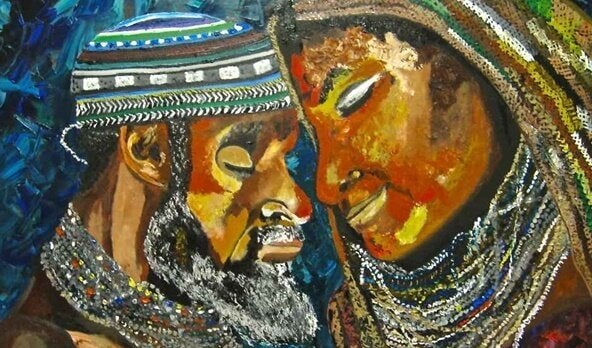Among South Africa’s Christmas tribes, the most common greeting is Sawubona. It literally means “I see you, you’re important to me and I appreciate you. “It is a way of seeing the other, of accepting it as it is, with its virtues, its nuances, and also with its flaws. In response to this greeting, people often say “shikoba”, so I exist for you.
Natal was one of four home provinces in South Africa, including Bantustan (a territory reserved by the government for the black population in South Africa) from KwaZulu, or Zulu land. Most of what we know about this region and its people undoubtedly dates back to the famous war with Great Britain at the end of the 20th century, however, history books sometimes camouflage, relegate or reject this cultural, human and cultural heritage. philosophical so interesting that it is present among the African peoples.
- Sawubona: all my attention is with you.
- I see you and I allow myself to discover your needs.
- See your fears.
- Delve into your mistakes and accept them.
- I accept you as you are and you are part of me.
As curious as it may seem, the term sawubona gained importance in the 1990s with a book on engineering and smart organizations. In “The Fifth Discipline,” Peter Sengue, a professor at Stanford University, spoke about the Zulus and their wonderful way of interacting and dealing with problems with each other. If they have become one of the most powerful civilizations on the African continent, it was no coincidence.
Sawubona symbolized the importance of directing her attention to another person, was understanding her reality without prejudice, without resentment, was being aware of the needs of others to give visibility to the individual within the group, to integrate it as a valuable piece into the community itself?
In our Western culture, the most common greeting is undoubtedly the “hello, how are you?”Most of us say these three words automatically and without waiting for an answer. It’s an introduction to a conversation, it’s a quick and brief greeting to make a good impression, but be brief. We rarely look each other in the eye. Because life urges us, pushes and projects more towards our own needs than looking carefully at other eyes to understand real needs.
The Zulu people promoted the need to see others consciously and slowly, sought that moment to maintain a relaxed eye contact, in which they look and see, in which they feel and listen, in which the soul of the other is embraced, even if it is. contains dark corners, wounds and acts that require some kind of repair on the part of the community.
Sawubona is that word with which our trust is transmitted to the other, it is to give visibility to the other and show that our attention is placed on him, it is about demonstrating our genuine desire to understand, to see his needs, his desires, his fears, his sadness, his beauty and his virtues. Who wouldn’t want to be seen like that?Few things are as rewarding as giving visibility to the other, such as giving the other a space, a presence, a relevance in our hearts and an importance within the group, the home, the community. organization.
There are those who find some similarity between the term sawubona and the namaste of the Hindu language, without greetings are obediences and a way of enlightening the other, of communicating souls, desires and reciprocity, there is immense beauty in these Gestures so strange to our world, there is something healing and even cathartic that can inspire us in our daily lives.
Let’s take a little more look at this idea below
When a member of the Zulu community committed an inappropriate, reprehensible or offensive act, his presence in the center of the village was necessary, his neighbors, friends and family surrounded the person, who was exactly in the center. After that and for two. Days, they addressed the person with sawubona’s greeting, with the famous reverence afterwards, and then began to remind him of his virtues, his successes in the past and all his qualities.
For the inhabitants of Natal and the Zulu community, as well as for Rousseau, no human being was born ill, sometimes crises and imbalances occur that take us away from this center of natural goodness, the purpose of these encounters was to remind the person of The Road back to nobility, at the same time, should be used to show the importance of the presence of the person to the other members of the village , the goal is to exalt the individual, to give him visibility so that he can reorient his steps towards the path of good, harmony and joy.
Thus, each time a community member addresses the person with the word sawubona, he must respond with “Shikoba”. This expression was both of relief and happiness because those who at first would have felt distant from the group because of their bad attitudes now had the opportunity to return, this person has had space, importance and recognition, it was time to do it again.
Zulus maintain the idea that human beings exist only if others see and accept them. It’s the community that makes the person. Therefore, nothing can be more satisfying than being forgiven after a mistake, than leaving this space of solitude in which we live after an unhappy act to return to the community, to the communion of the group, knowing that we are visible, dear and accepted. .
So let’s learn from this African tribe. We will learn to “see”, to pay attention to people as sawubona’s greeting says: I see you and accept you as you are, let us be able to perceive needs, forgive mistakes and promote cohesion in all the social scenarios of which we are a part.

